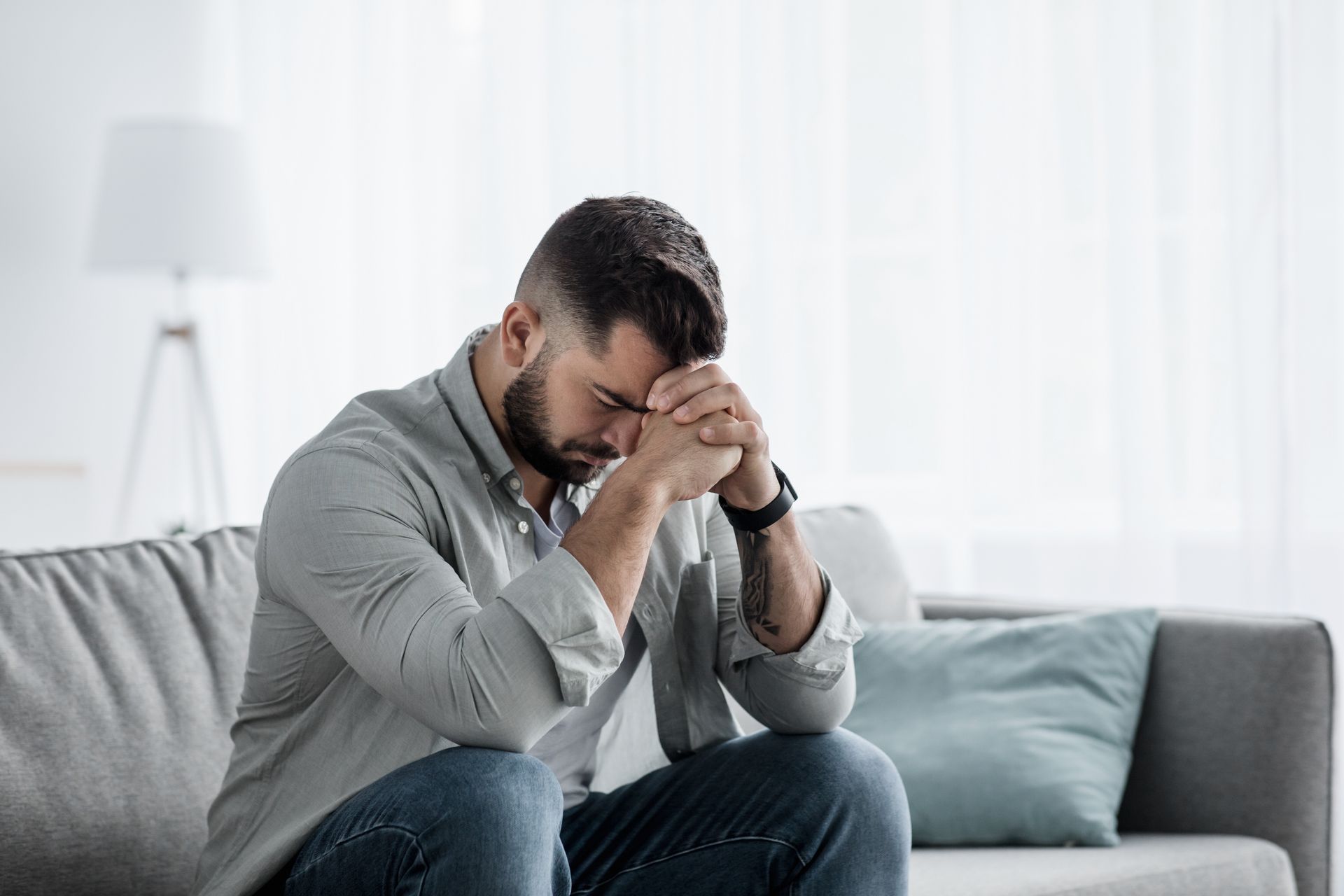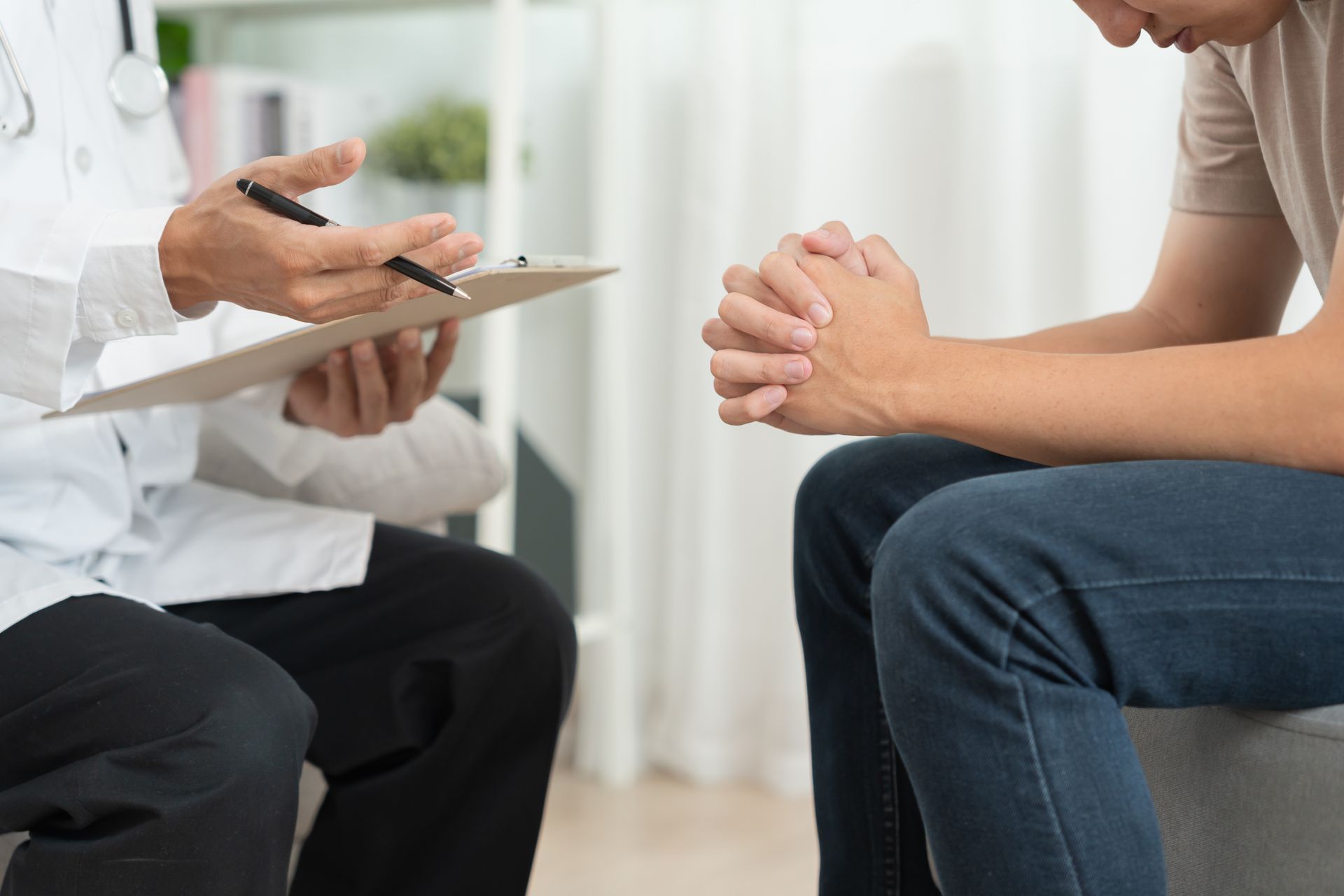Post Traumatic Stress Disorder Medications (PTSD)

Post Traumatic Stress Disorder (PTSD) is an anxiety disorder that happens after experiencing a deeply threatening and traumatic event. PTSD can last for months or years after witnessing or experiencing a scary event. It can be the death of a loved one, serious accidents, sexual abuse, military confrontations, wars, or crimes.
People with posttraumatic stress disorder can have disturbing thoughts, intense feelings, irritability, insomnia, flashbacks, anger, nightmares, and a lot of painful emotions.
Last year, PTSD affected about 3.6% of the adult population in the US. Almost half of the American adults experience one traumatic event in their lifetime. People who have experienced traumatic events have a high risk of developing PTSD. Those with this anxiety disorder feel they will never get their life back, and it disrupts their ability to function. The percentage of PTSD is twice in women than in men.
But it is possible to treat PTSD. There are many ways to treat PTSD, including various therapy techniques and PTSD medications that work very well. These treatments help improve your distressing symptoms and recover. However, the important thing is that the treatment of PTSD depends on your experience.
In this article, we will discuss the medication treatment of PTSD in detail. Keep scrolling and reading to find what medications can treat Posttraumatic Stress Disorder.
Medications for Post-traumatic Stress Disorder (PTSD)
Although medication can't replace therapy, it is used in conjunction with psychological treatments. It is not advised only to use medication; psychological support is much needed to treat PTSD. Medications are only recommended in specific situations, depending on the type & severity of symptoms.
Medications improve chemical balances in the brain to minimize PTSD symptoms. Medication can provide short or long-term relief from symptoms such as panic attacks, anxiety, and depression, associated with this form of anxiety disorder.
Antidepressants such as SSRIs and SNRIs are commonly prescribed to treat the symptoms of PTSD. In addition, mood stabilizers, anti-anxiety medications, and alpha 1-blockers are also used for the treatment of PTSD. They all have side effects, so it's essential to know the efficiency and side effects of the medications and consult with the doctor before starting the treatment. Let's take a look at these medications and their side effects.
Antidepressants- SSRIs
Selective Serotonin reuptake inhibitors (SSRIs), known as antidepressants, are the first class of medications for PTSD. They're prescribed to people who feel so depressed or anxious. These drugs treat PTSD, anxiety disorders, and major depressive disorder (MDD).
SSRIs have a well-recognized role in increasing serotonin levels in the brain. Serotonin is a feel-good neurotransmitter that enhances happiness, mood, and well-being, and it improves communication among nerve cells, leading to decreased anxiety. Also, they help treat sleep problems. Moreover, these medications can take up to 12 weeks to become fully effective.
Here are SSRI medications:
- Sertraline (Zoloft)
- Paroxetine (Paxil)
- Fluoxetine (Prozac)
Sertraline and Paroxetine are FDA-approved drugs and are common for treating PTSD. Fluoxetine is effective in preventing PTSD relapse but is used off-label to treat PTSD.
However, in studies and clinical trials, sertraline reduced PTSD symptoms in more than 50% of people and was proved well-tolerated. While paroxetine effectively improved PTSD symptoms in about 52% to 64% of people.
Side Effects of taking SSRIs for treating PTSD
- Nausea
- Upset stomach
- Diarrhea
- Dry mouth
- Sexual disturbances
SNRIs
- Venlafaxine (Effexor)
Serotonin-norepinephrine reuptake inhibitors (SNRIs) are other antidepressants that increase the serotonin and norepinephrine levels in the brain. So, it treats depression and stabilizes mood by improving communication between nerve cells. The imbalance of norepinephrine leads to worsening PTSD symptoms.
Venlafaxine is conditionally recommended for treating PTSD, but it is used off-label. This drug lessened posttraumatic stress disorder symptoms in above 50% of people.
Side effects of Venlafaxine
- Headache
- Constipation
- Nausea
- Insomnia
- Dry mouth
- Changes in sexual function
Mood Stabilizers
Mood stabilizers are recommended for adults who don't respond effectively to antidepressants. Mood stabilizers are used for the primary symptoms of PTSD, such as irritation, anger, or agitation. They balance brain chemicals that regulate emotions in people with PTSD. Here is the list of mood stabilizers that are prescribed to treat PTSD:
- Topiramate (Topamax)
- Lamotrigine (Lamictal)
Side effects of mood stabilizers
- Nausea
- Vomiting
- Tiredness
- Insomnia
- Dizziness
- Skin rash
Anti-anxiety Medications
Anti-anxiety medications are prescribed to adults with anxiety that become a problem for them to perform daily life activities. It can be difficult to attend college and go to work with severe anxiety. Anti-anxiety medications help to relieve PTSD symptoms such as panic attacks or intense emotions.
Furthermore, they have physical and mental effects. These drugs offer short-term relief and slow down the nervous system, which makes you feel calm.
Here is the list of anti-anxiety medications to treat posttraumatic stress disorder.
- Diazepam (Valium)
- Alprazolam (Xanax)
- Clonazepam (Klonopin)
- Lorazepam (Ativan)
Side effects of anti-anxiety medications for treating PTSD
These medications also have some possible side effects, such as:
- Headaches
- Memory loss
- Tiredness
- Fatigue
- Confusion
- Blurry Vision
Alpha 1-blockers
If a person experiences frequent nightmares associated with PTSD and has trouble sleeping, doctors may prescribe alpha 1-blockers. Alpha 1-blockers are another class of medications used to treat PTSD symptoms.
These medications reduce disruptive sleep and suppress the occurrence of nightmares. It blocks alpha 1-receptors in the brain, which decreases the brain's fear & startle responses, and you can get better & more profound sleep.
Here are the renowned Alpha 1-blockers to treat PTSD:
- Doxazosin
- Prazosin (Minipress)
Side effects of Alpha 1-blockers
- Dizziness
- Fainting
- Headache
- Breathing difficulty
- Low blood pressure
- Muscle & Joint pain
- Weakness in body
- Runny nose
Can PTSD be treated without medications?
Medication is helpful in minimizing symptoms and managing PTSD. But, psychotherapy and counseling are also highly recommended treatments. Some people better respond to medications, while some to therapy.
So, it depends on your experiences and symptoms. It would be best if you discuss this with your doctor or mental health professional to find what is the best option for you.
What are the complications if PTSD is left untreated?
If PTSD is left untreated, it can negatively affect a person's whole life and lead to many complications. Symptoms and experiences vary from person to person, so it's crucial to have proper treatment to prevent serious health consequences such as:
- Higher risk of heart diseases
- Neurologic problems
- Breathing problems
- Disruptive sleep
- Difficulty with work, relationships
- Higher risk of chronic diseases
- Major changes in the body that affect the brain
- Diabetes
- Mental health conditions such as anxiety, depression, SUD
- Greater chance of autoimmune diseases
Symptoms of this anxiety disorder can become overwhelming in case of no treatment, and people may start misusing substances such as drugs and alcohol. In addition, according to research, there is a solid link between PTSD and suicide. The suicide rate is higher in people with PTSD than those without it. So, it's necessary to take proper treatment of it.
Self-help Tips
In addition to therapy and medications, it is also important to do self-care and active coping for the sake of your overall well-being. You need to accept the impact of events and try out the things that calm you and make you happy to work through this process. Here are some self-care tips to try out in this challenging time that will help you move towards recovery.
- Spend time with your support network, your loved ones, and the people who have experienced such conditions
- Allow yourself to feel emotions and release them. Share your feelings with your loved ones for comfort.
- Engage in some physical activities such as swimming, walking
- Practice meditation to calm your mind & body and eat a healthy diet
- Listen to your favorite music
- Spend time in nature
- Take a little break from social media
- Try out hobbies that you love to do
- Celebrate events and moments with family and friends.
- Try therapy or counseling.
Final Thoughts
Posttraumatic stress disorder (PTSD) is a mental health condition that develops after experiencing a traumatic event. If it is left untreated, it can lead to serious health complications. Fortunately, PTSD is a treatable condition: you can treat it with therapy, self-care, virtual psychiatric care, and medications.
If you or someone you love has experienced traumatic events and has PTSD symptoms, it's significant to take treatment. Thus, seek out consultation with a therapist or mental health professional. Also, before starting taking medications, contact a licensed prescriber for guidance.
However, If you don't want to go somewhere and are looking for an online consultation, try out
virtual psychiatric care to help you in this period. Discuss the symptoms, experiences, and options with your provider to get the best PTSD treatment. Last but not least, learn about PTSD, do self-love, and make your health a priority to move towards recovery.











